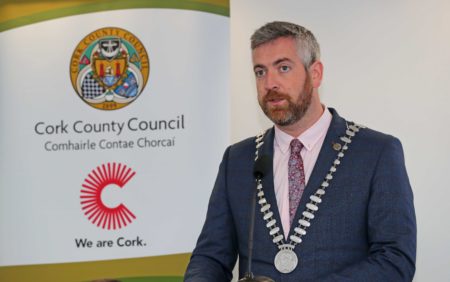27 March 2020
By Elaine Murphy
elaine@TheCork.ie

Emergency laws aimed at the Early Education providers must be revisited or the industry is at severe risk, Cork South West Deputy Christopher O’Sullivan says
The Government must immediately revisit emergency laws designed to help the early childhood industry, as countless preschool, Montessori and creche owners express fears they will not be able to reopen when Ireland emerges from the coronavirus crisis.
The government announced a raft of measures it said will help childcare workers, while early years employers only found out this week ECCE support will be gone by Friday and a new scheme offered. The new package includes a grant of 15 percent of wages bill payment to crèches.
There are fears among creche and preschool operators – the majority of which are privately owned – the amount will be absorbed entirely as they pay staff holiday entitlements, as well as employers’ PRSI.

Christopher O’Sullivan previously served as Mayor of the County of Cork and was elected as a TD in the recent general election
In other words, the grant fails to provide most business owners with enough money to cover rent and overheads on their premises, Deputy O’Sullivan said.
“I have been contacted by several operators who are deeply afraid that when this crisis is over they will not have a business to reopen,” Deputy O’Sullivan said.
“The fact is there are not enough supports going to creche and preschool operators to ensure they can get back on their feet on the other side of this crisis.”
Cabinet agreed earlier this week that childcare workers are to be paid in full and parents won’t have to pay crèche fees for three months while keeping their child’s place.
The government said this is to ensure crèches can reopen once the crisis has passed and to provide assurance to parents and workers in the sector.
Minister Katherine Zappone’s department needs to announce further supports straight away to help employers in the early childcare sector, Deputy O’Sullivan said.
“At the very least there should be a freeze or suspension of payment of rent and utilities for these operators,” he said.
“I have written to Minister Zappone and urged her to announce supports straight away to help employers in the Early Childcare sector.”
In one example, a crèche operator who contacted Deputy O’Sullivan said that once she had paid staff and availed of the new measure, she would be left with just over €250 to pay the rent on buildings, phone, ESB etc.
“This woman loves her job and the service she provides to her community and it’s just one example among many I have received,” Deputy O’Sullivan said.
“The measures announced by the government, aimed almost solely at employees and not operators, risks leaving employees with no job to return to when this crisis abates.”
“It will add undue burden to our welfare providers at the other end of this crisis.”
